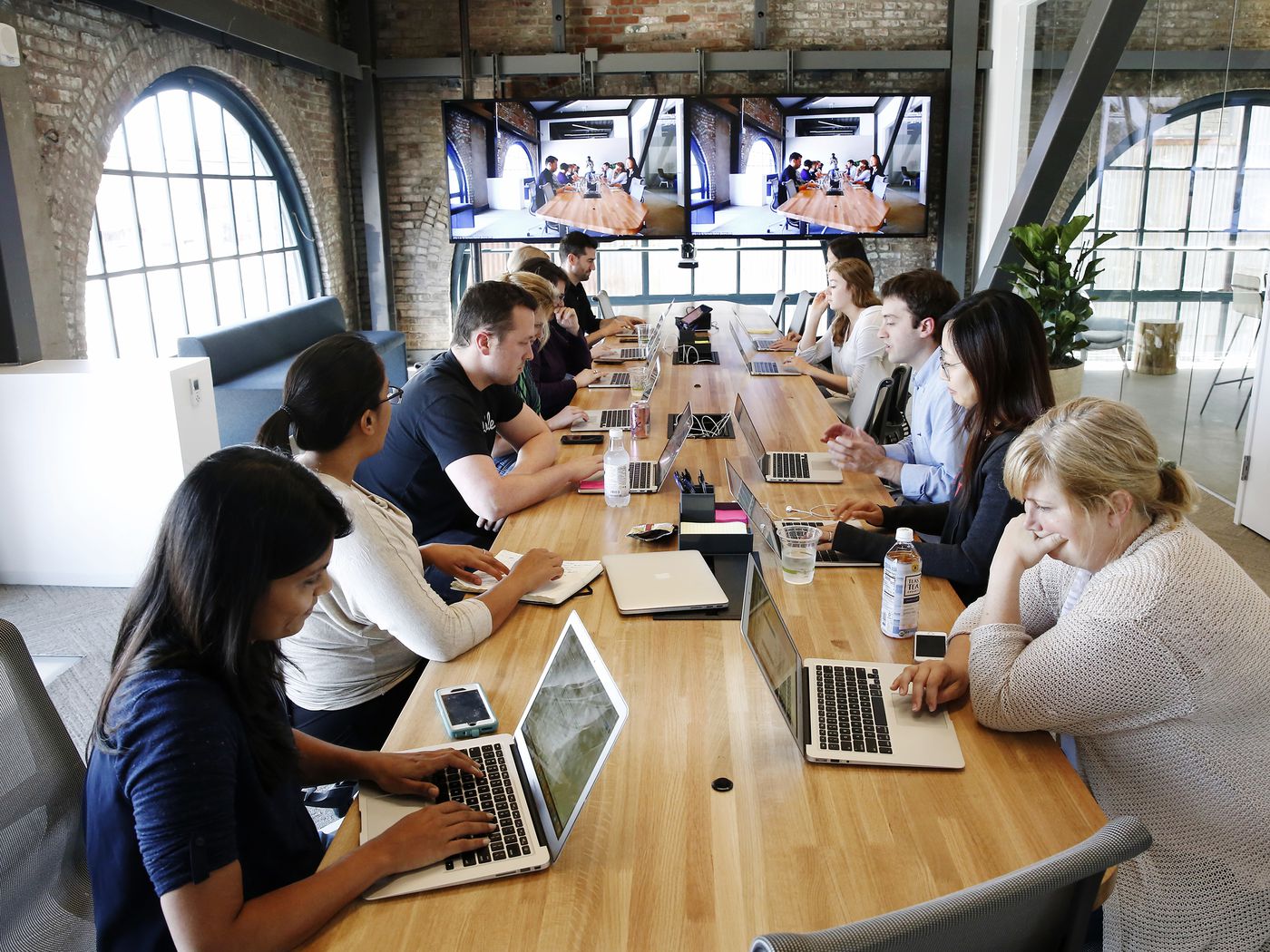#1 Cardinal rule to reduce remote burnout: Create a workspace
Workspaces are a crucial ingredient in the working-from-home recipe. Some of the benefits of having a designated workspace include better organization, better sleep and increased productivity. When I began working from home three and a half years ago, my workspace was next to non-existent. At the time I was living in a college dorm room and found that most days I was working in bed or at my desk while also watching tv.
Over time, I realized that this setup was no longer working and by the end of a work task, I felt drained. Not only that, but it started affecting how I was sleeping. According to The Division of Sleep Medicine at Harvard, when you can keep electronics away from where you sleep, your brain will stop associating those spaces with work and start associating them with rest. This will mean better sleep, less stress, and reduced burnout. Your workspace doesn’t have to be fancy. Forget the Pinterest mood board workspace and be realistic with what you can do with the space you have. In one apartment, I used the couch as my exclusive workspace. Today, I’ve turned my guest room into a make-shift office.
Creating a workspace doesn’t have to be all about work either. Have some fun with it. Find a couple DIY projects online or visit your favourite home goods store and decorate your space to make you feel inspired to do what you do. Not only will this help reduce burnout in the long run, but making it a fun project will also help you unwind and take time for yourself.
#2 Cardinal rule to reduce remote burnout: Schedule your days, and stick to it
It’s easy to get lost in the day-to-day when you’re spending so many of them at home. One of the more recent lessons of remote work I’ve learned since the beginning of the pandemic, is to create a set schedule. One of the best parts of being young is having time to do all the things you’ve dreamt of doing. While I know the pandemic has slowed down those goals for a lot of us, that doesn’t mean we should spend our time on something else. Before I started making changes to my schedule, I found that I was getting burnt out a lot, and couldn’t figure out why. It wasn’t until I took a look at how I was splitting my days, that I noticed a huge problem, I never stopped working.

From when I got up to when I went to bed, I was spending my free time doing busy work rather than really allowing it to be free time. I gave myself little time to focus on fun, and when I did I was so distracted by important emails or last-minute schedule changes that I forgot to let loose. I eventually reached out to my team here with Management 3.0 and told them the way I was feeling. We came to the agreement that I would work a set amount of hours, on select days of the week, and outside of those time frames, I am unavailable except for emergencies.
Not only has this allowed me to schedule what I need to get done (and how to get it done in a realistic time frame,) but it’s given me the chance to schedule time for the things that I enjoy. If you’re unable to schedule your hours, I recommend scheduling at least an hour a day for something that brings you joy. Whether it be painting, online shopping, or watching an episode of your favourite tv show, taking an hour for yourself can make a world of difference when it comes to burnout.
#3 Cardinal rule to reduce remote burnout: Leave work off of your phone
Since I started working from home, I’ve found that my daily screen time has increased tenfold, and even more so since the beginning of the pandemic. The majority of my increased screen time has been on my phone since it’s been such a great way to keep in contact with those I love. For a time, I was also using my phone regularly for work. My phone was a great way to submit something last-minute, or get answers to an email that had to go out ASAP! I soon realized, however, that allowing myself to work from my phone was breaking my two cardinal rules of remote work, so I had to make a change.

Our phones can be really great tools to keep us connected during hard times, and so I’ve made the move to leave my phone for just that, connection. While apps like Slack and Trello are known to be amazing for productivity, I would argue that if not used correctly, they can do the exact opposite. As young people, we need to be able to have an online space that is separate from work,. I removed all apps that were focused on work and it has made a world of difference in reducing burnout. Without work apps on your phone, you can start your day without immediately checking your email, or you can enjoy a Facetime date with your best friend without worrying about a changed deadline. This allows you the freedom to enjoy the time that isn’t meant for work, and only focus on work in the appropriate place and at the appropriate time.












Replies to This Discussion